Can You Use Dog Shampoo on Cats? (2024 Update)
You might be tempted to use cross-use products if you have a pet-friendly household full of cats and dogs. But can you use dog shampoo on cats?
Dog and cat shampoos differ significantly, and cleaning products that may be safe for your pups can prove dangerous for your other four-legged family members.
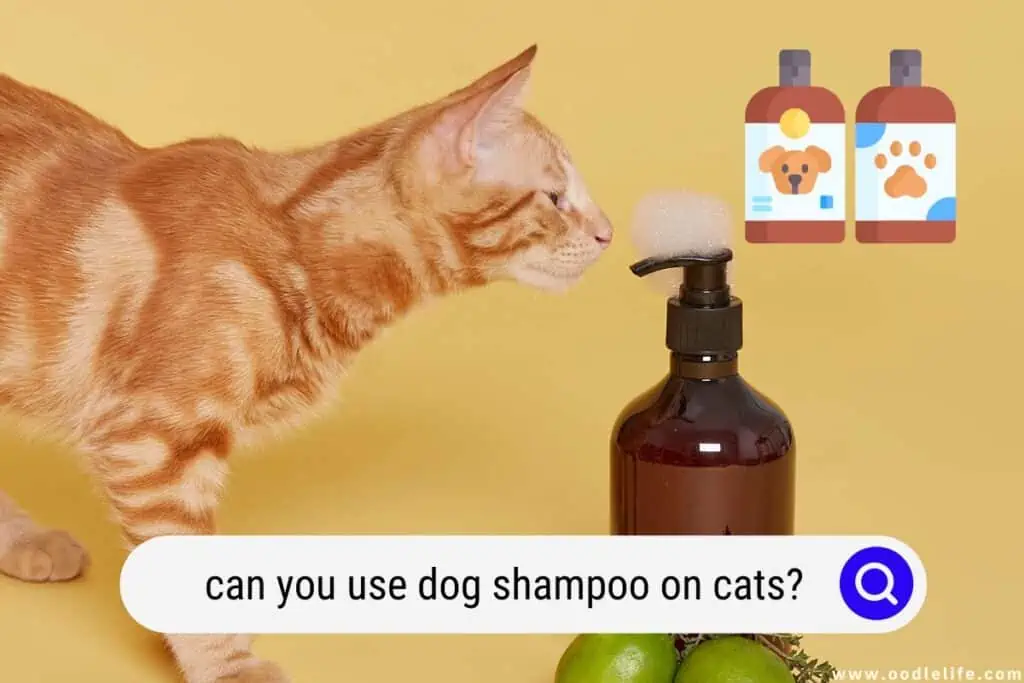
In this article, we’ll explore the reasons why you’ll want to avoid using dog shampoos to clean your cats. That way, you won’t cause unwanted harm to your animals while also helping keep them clean and healthy!
Dangers of Using Dog Shampoo on Cats
Can you use dog shampoo on cats? Generally, the answer is no.
After all, dog shampoos may:
- Contain toxic ingredients for cats
- Have flea-killing chemicals that are too strong for cats
Let’s delve more deeply into these dangers to understand why they make dog shampoo a poor choice for feline family members.
Potentially Toxic Ingredients
Some dog shampoos pride themselves on their lack of harmful ingredients, with Burt’s Bees Dog Shampoo being a notable example.
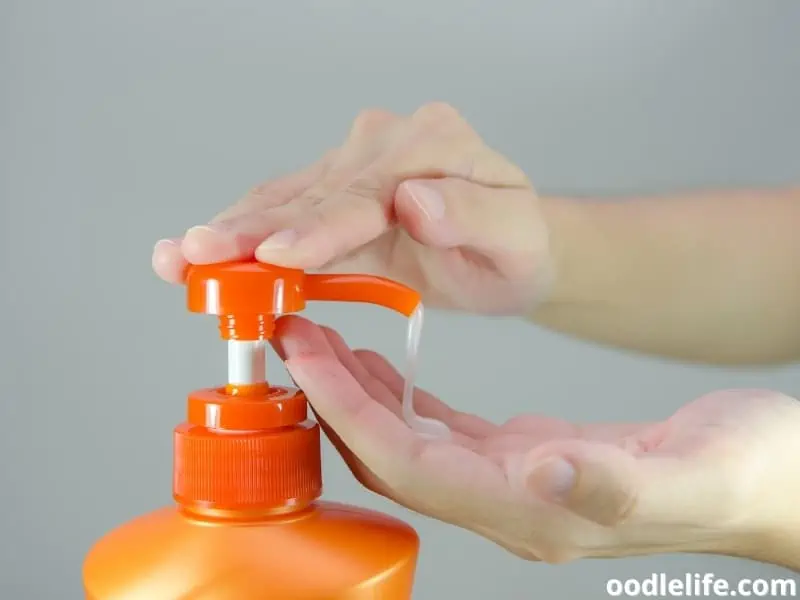
But the average bottle of dog shampoo can contain:
- Dyes
- Sulfates
- Alcohol
- Preservatives
Each of these components can cause health problems in both dogs and cats. But while some dogs and cats are equally sized, for the most part, cats are far smaller.
Because cats aren’t quite as large as most medium or large dog breeds, they’re far more susceptible to chemicals. This is why cat-specific flea products tend to feature lower dosages than ones created for large dog breeds.
And because many dog shampoos are designed to kill and prevent fleas, using these products to bathe your cat can cause significant harm. Remember, dog shampoos with common flea-killing chemicals can prove too strong for cats and kittens!
Overly Strong Chemicals
Anti-flea shampoo can feature a single chemical (like permethrin) or a chemical cocktail made of the most popular flea-killing compounds.
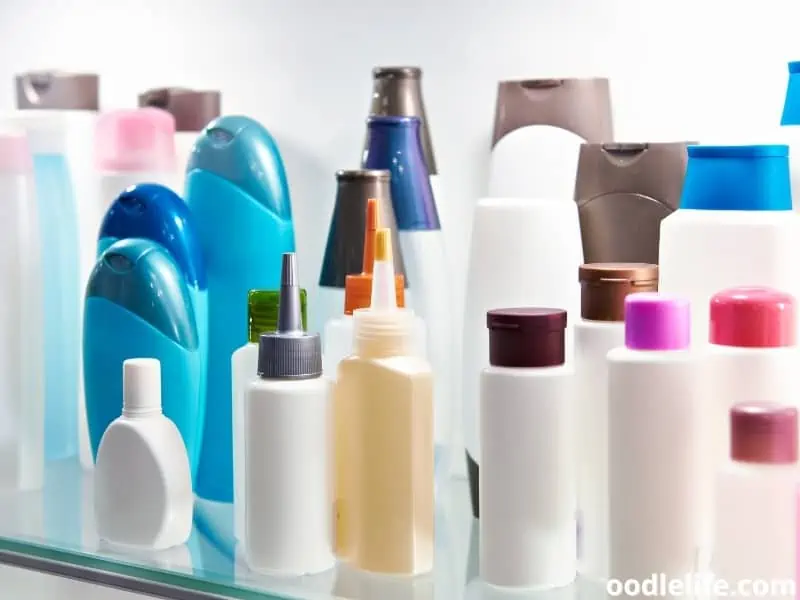
You can quickly discover which chemical or chemicals are present by taking a quick peek at the active ingredients panel on the back of your dog’s shampoo bottle. More than likely, you’ll find compounds like:
- Pyrethrins
- Phenothrin
- Permethrin
- Piperonyl butoxide
When applied safely, these chemicals kill fleas and flea eggs without harming your pets. But the percentage of these active ingredients is often higher in dog shampoos than in cat shampoos.
Consequently, dog shampoos can be dangerous to cats due to their higher dosage of chemicals. It’s also vital to note that some dog shampoos also contain essential oils like rosemary, peppermint, and tea tree oil.
These might smell pleasant and help repel fleas, but they can be dangerous to cats. In fact, the strong scent of these oils can leave your cat gasping for breath, and some can induce vomiting.
Some dog shampoos can elicit allergic reactions in cats, necessitating emergency visits to your local veterinarian. Fortunately, several safe alternatives are available to pet parents looking to rid their cats of fleas or keep their coats clean.
Alternative Cleaning Solutions To Consider
Cats are fantastic groomers, and there are only a handful of reasons why you might want to bathe your cat. For example, if your cat is flea-ridden, getting too old to clean itself properly, or suffering from patches of matted hair, a bath might be necessary.
But instead of using dog shampoo to get your feline family member squeaky clean, you’ll want to consider the following:
- Using flea prevention products
- Keeping your cat indoors
- Grooming your cat with a dematting brush
- Investing in regular grooming services
The best option for you and your cat depends on your needs, preferences, and budget. Let’s quickly touch on each one to find out which might work best for you and your four-legged pal.
Using Cat-Friendly Flea Prevention Products
Fleas and water don’t mix; most fleas will jump overboard when exposed to running water. But if your cat is crawling with fleas, washing them with dog shampoo can do more harm than good.
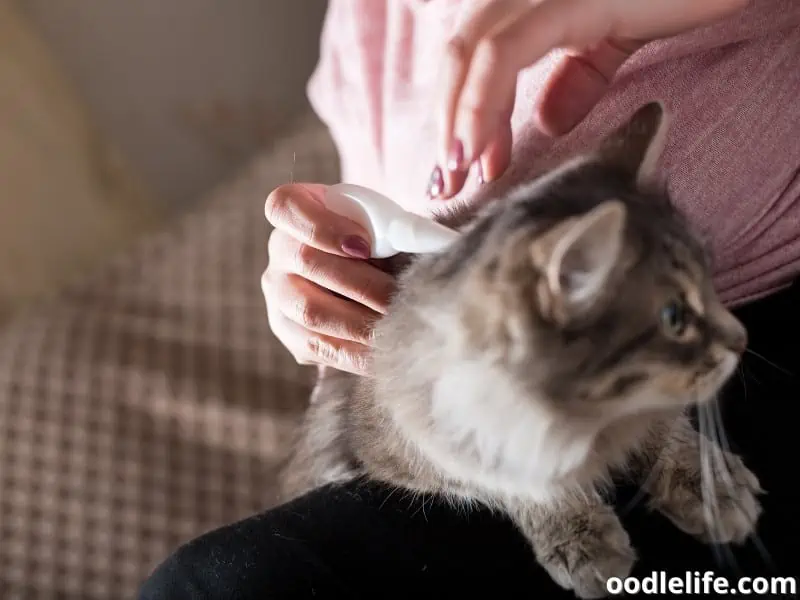
That’s why it’s essential to take your cat to a veterinarian at the first sign of flea trouble. Your veterinarian can recommend cat-safe anti-flea products, including topical medications, flea collars, and single-use flea-killing medications.
Keeping your cat indoors (and treating your home for fleas) can also significantly reduce flea infestations over the long run.
Keeping Your Cat Indoors
Because cats are naturally gifted self-groomers, most don’t experience hygiene problems, especially when they’re kept indoors.

So, if your outdoor or indoor-outdoor kitty is experiencing problems with fleas, matting, or general dirtiness, consider changing their lifestyle to an entirely indoor one. Not only will your cat’s coat enjoy this change, but so will the local bird population.
Investing in a Dematting Brush
A dematting brush is a great tool for multi-pet households, and it’s an affordable solution to matted hair. The best dematting brushes are easy to use and are similar to standard wire brushes, though they’re not designed for daily use.
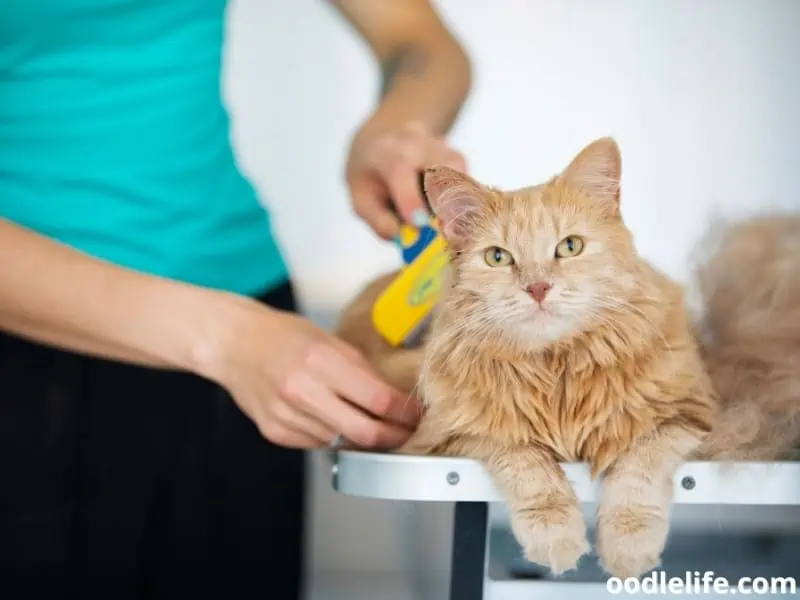
If your cat enjoys being brushed (but has long hair that tends to mat together), this option might be the most effective and convenient. Besides, most cats are far more open to brushing than taking a bath!
Taking Your Cat to a Groomer
If you own a long-haired cat, keeping them groomed might require daily brushing and occasionally trimming sessions. But if you enjoy a busy lifestyle, finding the time to keep your cat groomed can be challenging.
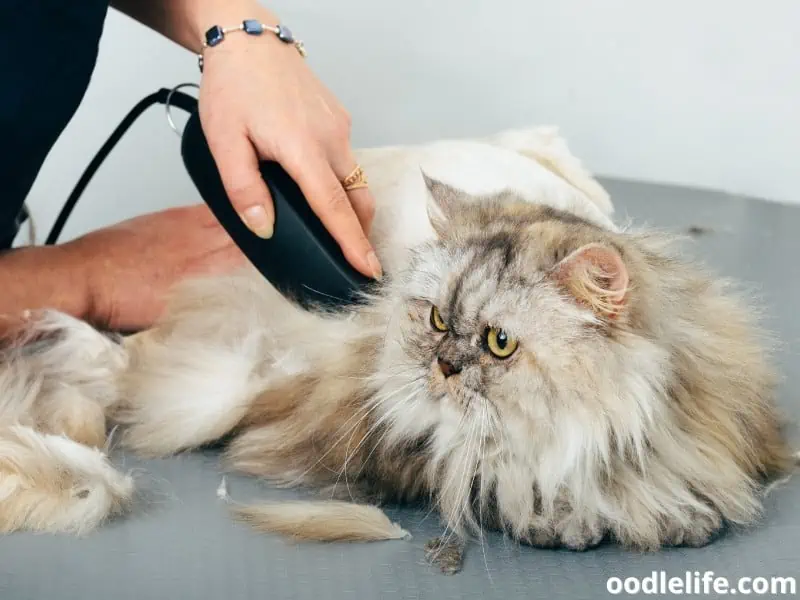
Taking your feline friend to a professional groomer who works with cats is a fantastic option. Not only will you save yourself from the agony of dealing with a stressed-out cat and several scratches, but you can rest easy knowing that your cat is receiving top-notch care.
Depending on your cat’s needs, a groomer can trim their claws, thin their coat, remove matting, and leave them smelling great—without resorting to potentially dangerous chemicals and grooming products.
Final Thoughts
So, can you use dog shampoo on cats? Though you might be able to use dog shampoo on your cat (particularly shampoos formulated for small breeds), it’s far safer to use cat-specific shampoos to clean your cat’s coat.
After all, the chemicals in most dog shampoos may be too powerful for cats, resulting in problematic physical reactions that include vomiting, difficulty breathing, and an allergic reaction.
Additionally, there are a few reasons to bathe a cat. If you’re trying to get rid of fleas, it’s better to use an approved, cat-friendly flea-removal product or medication. And if your cat’s coat has developed matting, a dematting tool or a trip to the local groomer is a fantastic choice.